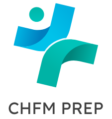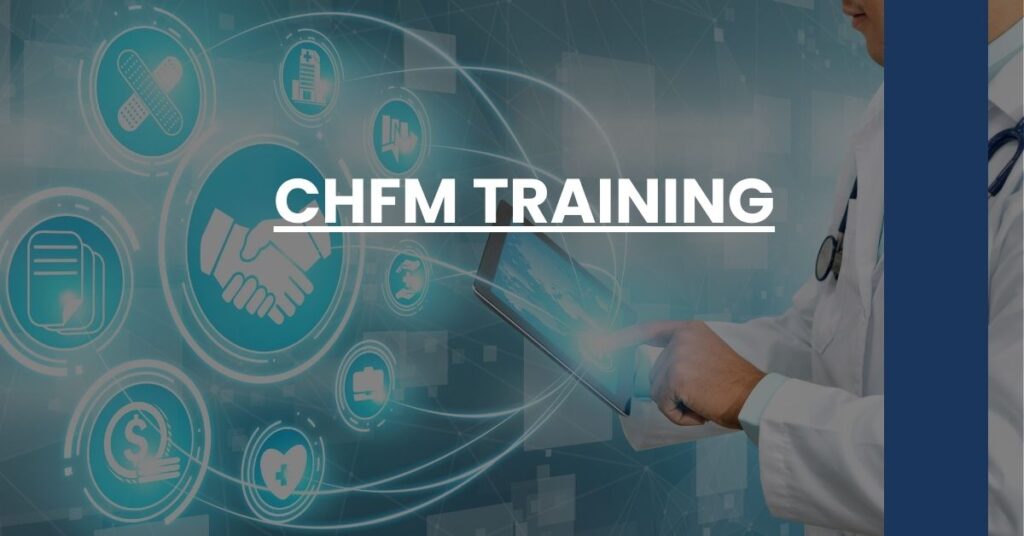CHFM training sets the foundation for mastering healthcare facility management.
- CHFM Training Essentials: Grasp core concepts and the scope of responsibilities in healthcare management.
- Certification Advantages: Discover the professional edge that a CHFM certification offers in the healthcare industry.
- Course Selection: Navigate the options to find the best CHFM training for your career growth.
Kickstart your journey with the right CHFM training program.
- What is CHFM Certification?
- Eligibility Criteria for CHFM Certification
- Overview of CHFM Training Programs
- Key Skills Covered in CHFM Training
- Exam Preparation and Tips
- Online vs. In-Person CHFM Training Pros and Cons
- CHFM Continuing Education and Recertification
- Cost and Investment for CHFM Training
- Evaluating the ROI of CHFM Training
- Where to Find the Best CHFM Training Programs
- Leveraging CHFM Training for Career Advancement
- Conclusion: Your First Steps towards CHFM Certification
What is CHFM Certification?
CHFM, or the Certified Healthcare Facility Manager certification, represents a prestigious accreditation in the realm of healthcare management. Administered by the American Hospital Association Certification Center (AHA-CC), it serves as a hallmark of professional achievement for facility managers overseeing the complex environment of healthcare institutions.
The Relevance of CHFM Certification
When you pursue CHFM training and certification, you’re not just adding a few letters next to your name—you’re gaining a respected credential that signals your expertise and commitment to excellence in healthcare facility management. With CHFM certification, you elevate your standing among peers, enhance your credibility, and potentially open doors to new career opportunities.
- Recognition: Your CHFM status is a testament to your specialized knowledge and professional dedication.
- Competency: It assures employers of your proficiency in adherence to regulations, maintenance of safe environments, and management of critical facility operations.
Understanding the importance of healthcare facility management is key to recognizing the value that CHFM-certified professionals bring to their organizations.
CHFM Certification: The Competitive Edge
In the ever-evolving healthcare industry, having a CHFM certification sets you apart and equips you with the most current practices and methodologies required to excel. It not only boosts your job prospects but also reflects your readiness to tackle the unique challenges of healthcare facility management.
Eligibility Criteria for CHFM Certification
Before you embark on your journey to become a CHFM, it’s crucial to understand the eligibility requirements. The criteria establish a baseline of education and experience to ensure that professionals are adequately prepared for the responsibilities the certification entails.
Preparing for Your Certification Path
Eligibility criteria serve as a roadmap to your certification. They outline the necessary milestones in terms of education and professional experience. Here’s what you need:
- Educational Background: A bachelor’s degree coupled with three years of related experience in a healthcare facility; or an associate’s degree or high school diploma with five years of experience.
- Leadership Experience: Demonstrable experience in a management or supervisory capacity within the healthcare facility sector.
Before you can dive into CHFM training, it’s important to ensure you meet these qualifications.
Overview of CHFM Training Programs
The structure of CHFM training programs is designed to comprehensively prepare you for the certification examination. Not only will the curriculum cover a broad range of topics essential to healthcare facility management, but it will also do so in a manner that accommodates your learning style and schedule.
The Breadth and Scope of CHFM Training
A typical CHFM training program might include modules such as compliance, facility maintenance, patient safety, and risk management. Essentially, these programs offer both a bird’s eye view and an in-depth exploration of what it takes to manage a healthcare facility effectively.
- Duration and Flexibility: Most courses offer a self-paced structure, allowing you to balance your professional responsibilities with your certification goals.
- Adaptive Learning Methods: Some programs provide interactive learning experiences, online resources, and even mentorship opportunities to enhance your understanding of the material.
The versatility of modern CHFM e-learning courses is perfectly suited to the varied needs of busy professionals.
Key Skills Covered in CHFM Training
The skills gained from a well-rounded CHFM training program are multifaceted. They not only prepare you for the certification exam but also equip you with knowledge and competencies that can immediately be applied in your role as a healthcare facility manager.
Mastering Multiplicity: The Skillset of Success
The CHFM training curriculum is carefully curated to impart a diverse set of skills essential to the day-to-day and strategic management of healthcare facilities.
- Compliance Mastery: Navigate the complex health regulations and safety standards with confidence.
- Operational Excellence: Efficiently manage the day-to-day operations, ensuring a safe and effective environment for patients and staff alike.
- Financial Acumen: Oversee budgets and financial plans that allow for the cost-effective operation of the healthcare facility.
Aligning with CHFM’s multi-dimensional approach, the training shapes a manager who’s adept at thinking strategically and executing tactically.
Exam Preparation and Tips
If you’re considering CHFM certification, know that exam preparation is critical. With a wealth of study materials and resources at your disposal, the key is to develop a robust study strategy.
Navigating the CHFM Examination
A thoughtful, targeted approach to preparing for the CHFM examination can alleviate stress and optimize your study sessions.
- Selective Study: Focus on areas where you have less expertise and regularly brush up on subjects you’re familiar with to reinforce knowledge.
- Effective Resources: Utilize study guides, practice exams, and consolidation techniques to maximize retention of material.
Taking insights from those who have successfully navigated the CHFM exam, consider adopting strategies that align with your learning preferences.
Online vs. In-Person CHFM Training Pros and Cons
The question of whether to choose online or in-person CHFM training is one faced by many professionals. Each mode of study comes with its own set of advantages and limitations, and it’s important to weigh these carefully when deciding which path aligns with your learning style, schedule, and professional objectives.
The Flexibility and Structure Balance
- Online Training Advantages:
- In-Person Training Benefits:
Understanding the merits of both online and in-person training is essential as you make an informed choice that best suits your situation and goals. Opting for the right platform can streamline your path to CHFM certification, as well as enhance your overall learning experience.
CHFM Continuing Education and Recertification
Keeping your CHFM certification is not a one-and-done deal. It demonstrates a commitment to continual learning and staying current with the evolving healthcare landscape. Continuing education (CE) and recertification are the pillars sustaining your certification’s validity and relevance.
Maintaining Your Certification with CE Credits
- Ongoing Education: Every three years, CHFM certified professionals must complete 45 contact hours of continuing education to renew their credentials. This ensures that you’re at the forefront of industry standards and emerging trends.
- Diverse Learning Opportunities: CE credits can come from various sources, including conferences, workshops, webinars, and even self-study courses—providing flexibility in how you choose to learn.
You must report your CE activities through the designated platform provided by AHA-CC, making it a seamless process to maintain your certification.
Recertification: Keeping Your Credential Active
- Recertification Through Continuing Education: Documenting your CE credits is the most common way to recertify. It reflects an ongoing investment in your professional development.
- Retaking the CHFM Exam: Alternatively, you may choose to retake the certification exam to renew your certification, which can be particularly useful if you want to brush up on all aspects at once.
Understanding the recertification process ensures that the valuable credential you worked so hard to earn continues to support your career progression.
Cost and Investment for CHFM Training
Think of CHFM training as an investment in your professional future. Yes, there are costs attached, but the potential returns—career advancement, salary increase, broadened expertise—make it a thoughtful investment.
Breaking Down the Financial Commitment
- Training Fees: The cost for training varies based on the program and your membership status with organizations like ASHE.
- Study Materials and Resources: Don’t forget to budget for books, practice exams, and other study aids that may be separate from the course fees.
Keep in mind that some employers may offer financial aid or tuition reimbursement for professional development, reducing your out-of-pocket costs.
Evaluating the ROI of CHFM Training
When deciding on any important endeavor such as CHFM training, it’s wise to consider its return on investment (ROI). Beyond obtaining the certification, you want to make sure that the time, effort, and money invested translate into tangible benefits.
Assessing the Gains from Your CHFM Investment
- Career Mobility: With certification in hand, you could climb the ranks within your facility management career, leading to potential salary increases.
- Enhanced Expertise: The knowledge and skills acquired from CHFM training can streamline your workflows and improve operational efficiency in your facility.
The ROI of CHFM training is inherently linked to your personal drive and the potential for professional advancement within the healthcare industry.
Where to Find the Best CHFM Training Programs
Choosing the right CHFM training program can feel daunting. However, with a bit of research and clarification of your professional goals, you can find a program that aligns perfectly with your learning style and objectives.
Locating the Training That Meets Your Needs
- Accreditation: Look for programs endorsed by respected healthcare organizations, which often indicate a high standard of education.
- Reputation: Do a little digging—reviews and testimonials from past participants can provide insights into the effectiveness of the training.
It’s important to select a reputable CHFM training program that promises to deliver the education and preparation you need for success.
Leveraging CHFM Training for Career Advancement
Beyond the immediate goal of certification, CHFM training is a powerful tool for charting a course toward career growth. It opens up new professional avenues and sets the stage for you to make impactful contributions within your organization.
Using Your Training to Propel Your Career Forward
- Networking: Certification confers entry to a network of professionals and industry contacts, facilitating invaluable connections.
- Recognition: CHFM status often leads to greater professional recognition and can position you for leadership roles.
Capitalizing on your CHFM training for career progression can lead you to unprecedented opportunities in the field of healthcare facility management.
Conclusion: Your First Steps towards CHFM Certification
Embarking on the journey toward CHFM certification is an exciting decision—one that can redefine your career trajectory. As you consider your path forward, remember that the training you receive is more than just a preparation for the exam; it’s an investment in your future as a professional in the dynamic world of healthcare facility management.
Take your first steps with confidence, knowing that CHFM training will arm you with the knowledge and skills required to make significant inroads in your career. Your commitment to achieving and maintaining this esteemed certification is a testament to your dedication to excellence in health facility management.
Don’t hesitate; begin exploring your options and set the course for a brighter professional future today.

